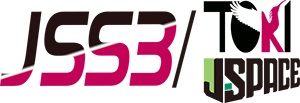Project support activity using numerical simulation
JAXA Supercomputer System Annual Report February 2022-January 2023
Report Number: R22EG3211
Subject Category: Research and Development
- Responsible Representative: Taro Shimizu, Research and Development Directorate, Research Unit III
- Contact Information: Hideyo Negishi(negishi.hideyo@jaxa.jp)
- Members: Junya Aono, Masaharu Abe, Takashi Amemiya, Hiroaki Amakawa, Yu Daimon, Taroh Fukuda, Hironori Fujiwara, Osamu Fukasawa, Manabu Hisida, Takanori Haga, Shotaro Hamato, Ashvin Hosangadi, Takayuki Ito, Hiroyuki Ikeda, Hiroyuki Ito, Masaru Kusano, Shoya Koshino, Masayuki Kakehi, Akio Kawaguchi, Yuuki Maekawa, Koshiro Nakayama, Hideyo Negishi, Takenori Nakajima, Yoichi Ohnishi, Shinji Ohno, Tetsuji Ogawa, Shuhei Oono, Taro Shimizu, Yoshiyuki Sawa, Seiji Tsutsumi, Ryoji Takaki, Masashi Toyama, Akimitsu Terunuma, Satoshi Ukai, Himeko Yamamoto, Keita Yamamoto, Hikaru Yamashita, Rika Yamada, Andrea Zambon
Abstract
Utilize the simulation technology of Reserch Unit III to deal with the technical problem solving in current JAXA project, and respond to the request for the project concerning issue. In addition, it realizes “added value (efficiency improvement, high reliability, cost / period reduction, ripple effect, etc.)” unique to numerical simulation technology.
Reference URL
Please refer to ‘Research on software, computational engineering, and V&V technology for space systems | JAXA | Research and Development Directorate‘.
Reasons and benefits of using JAXA Supercomputer System
In order to respond timely to project requirements, it is necessary to simulate complex geometries of actual spacecraft and to analyze a large number of conditions in a short period.
Achievements of the Year
With regard to JAXA projects such as H3, SLIM, MMX, HTV-X, and so on, evaluation of design and risks as well as studies for improvement were carried out by making full use of the simulation technology of Reserch Unit III and JSS3.
Publications
N/A
Usage of JSS
Computational Information
- Process Parallelization Methods: MPI
- Thread Parallelization Methods: FLAT
- Number of Processes: 12 – 400
- Elapsed Time per Case: 100 Hour(s)
JSS3 Resources Used
Fraction of Usage in Total Resources*1(%): 0.75
Details
Please refer to System Configuration of JSS3 for the system configuration and major specifications of JSS3.
| System Name | CPU Resources Used(Core x Hours) | Fraction of Usage*2(%) |
|---|---|---|
| TOKI-SORA | 11997857.59 | 0.52 |
| TOKI-ST | 779112.44 | 0.78 |
| TOKI-GP | 0.00 | 0.00 |
| TOKI-XM | 0.00 | 0.00 |
| TOKI-LM | 11327.84 | 0.76 |
| TOKI-TST | 1404109.00 | 37.00 |
| TOKI-TGP | 469.44 | 87.87 |
| TOKI-TLM | 43552.50 | 90.51 |
| File System Name | Storage Assigned(GiB) | Fraction of Usage*2(%) |
|---|---|---|
| /home | 4379.60 | 3.97 |
| /data and /data2 | 235174.15 | 1.81 |
| /ssd | 17454.90 | 2.42 |
| Archiver Name | Storage Used(TiB) | Fraction of Usage*2(%) |
|---|---|---|
| J-SPACE | 197.69 | 0.88 |
*1: Fraction of Usage in Total Resources: Weighted average of three resource types (Computing, File System, and Archiver).
*2: Fraction of Usage:Percentage of usage relative to each resource used in one year.
ISV Software Licenses Used
| ISV Software Licenses Used(Hours) | Fraction of Usage*2(%) | |
|---|---|---|
| ISV Software Licenses(Total) | 4712.30 | 3.28 |
*2: Fraction of Usage:Percentage of usage relative to each resource used in one year.
JAXA Supercomputer System Annual Report February 2022-January 2023


